Ethics Hub
Scenario: The person you’re supervising does something wrong
You are supervising an unregulated costs draftsman, Mr Andrews, who is assisting you with costs proceedings on behalf of your client, Mrs Barnard. You ask Mr Andrews to attend a hearing in the matter, as it relates only to procedural issues and you do not expect any controversial issues will be raised.
However, you subsequently discover that Mr Andrews has agreed a consent order with the other side at the hearing, without first obtaining instructions from Mrs Barnard to do so. He tells you that the Master clearly wanted the parties to agree the issue, so the client was unlikely to get a different outcome even if Mr Andrews had asked for time to take instructions.
You tell Mrs Barnard about the consent order. She says she would never have agreed to it if asked. She wants to complain about your firm to the Legal Ombudsman, seeking financial compensation for the lost opportunity to contest the issue.
Your firm tells her that because the mistake was made by Mr Andrews, who is unregulated, Mrs Barnard is not entitled to make a complaint to the Legal Ombudsman. Mrs Barnard emails you personally to tell you that she thinks this is ‘disgraceful’.
What are your obligations in this situation?
- A Costs Lawyer may instruct a colleague who is not an authorised person to attend a court hearing under the Costs Lawyer’s supervision.
- A Costs Lawyer who chooses to delegate a task to a colleague remains responsible for regulatory compliance and for client outcomes. You must therefore retain proper oversight of the matter and supervise Mr Andrews appropriately. This includes ensuring that:
- delegated tasks are carried out in accordance with the CLSB’s regulatory arrangements;
- the client understands in advance that the task will be delegated to a person who is not an authorised Costs Lawyer;
- the delegation complies with the Code of Conduct, in particular that delegating the task is in the client’s best interests; and
- the Costs Lawyer’s insurance policy extends to cover the outcome of any delegated tasks.
- In this scenario, you are responsible for retaining oversight of Mr Andrews and the client’s outcomes. You must ensure that the tasks you delegate to Mr Andrews are completed in accordance with the CLSB’s regulatory arrangements and that delegating this task to him is in the client’s best interests.
- It is important to note that under consumer law it will be the firm that is responsible for the actions of anyone acting in the firm’s name or on its behalf. Similarly, you may be responsible for anyone acting in your name or on your behalf. As Mr Andrews is acting on behalf of your firm and being supervised by you in this scenario, Mrs Barnard has a right to complain to your firm about him.
- The Legal Ombudsman only has authority to deal with complaints in relation to authorised persons under the Legal Services Act 2007. If Mrs Barnard does complain to the Legal Ombudsman, they may decide to deal with only part of the complaint, or may decide to treat the whole case as a Costs Lawyer’s responsibility where the Costs Lawyer was in charge of the matter or supervising the unqualified staff.
- Your obligation is to correct the information given by your firm, to inform Mrs Barnard that she is able to make a complaint, and provide details about how to do that e.g. provide a copy of your firm’s complaints procedure. If Mrs Barnard goes ahead with making a complaint, you must comply with your obligations under Principle 3 of the Code of Conduct and follow your firm’s complaints procedure.
- You should also ensure that, going forward in this and any other matters, Mr Andrews is properly supervised when carrying out any reserved legal activities (including conducting litigation and appearing in court).
See our Guidance Notes on the following topics in the Costs Lawyer Handbook:
- Reserved Legal Activity Rights
- Dealing with Consumers
